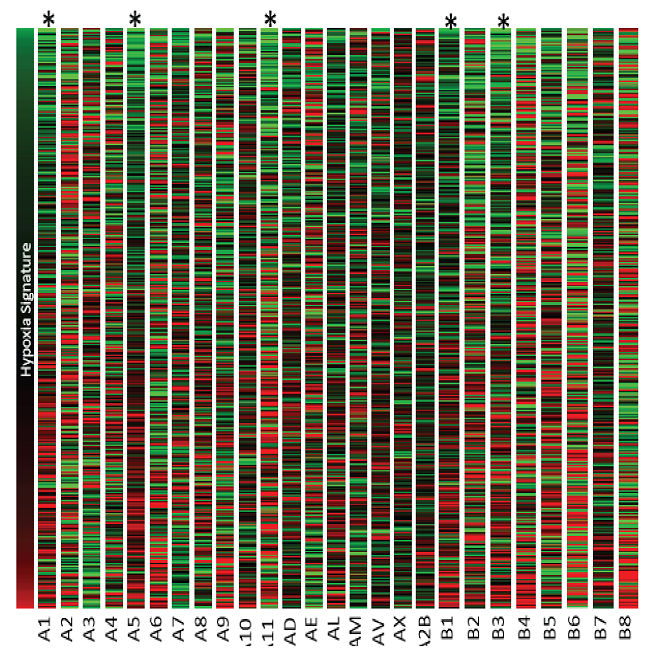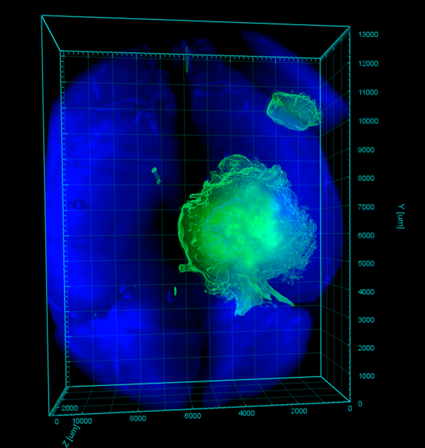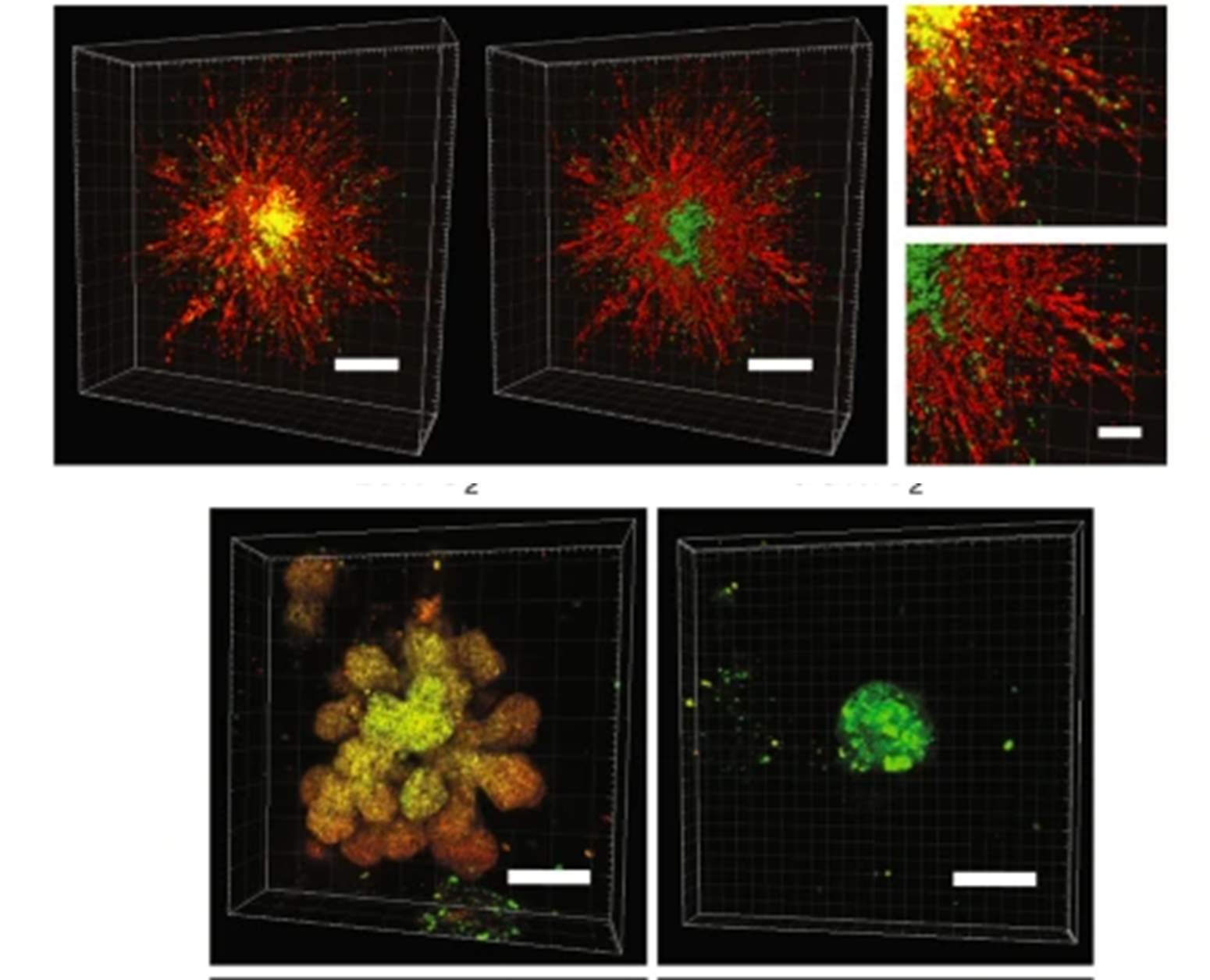Human breast tumors contain regions of hypoxia in which cells that are located far from a functional blood vessel have significantly reduced oxygen concentrations when compared with normal mammary tissue. Breast cancer cells adapt to hypoxic conditions by increasing levels of hypoxia-inducible factors (HIFs), which induce the expression of multiple genes involved in angiogenesis, glucose utilization, resistance to oxidative stress, cell proliferation, resistance to apoptosis, invasion and metastasis. Breast cancer patients with increased HIF expression levels in primary tumor biopsies are at increased risk of metastasis. This is an important finding since 90% of breast cancer deaths are the result of metastasis, primarily to the bone, lungs, liver, brain and regional lymph nodes. Although the prognostic significance of reduced oxygen levels in primary breast tumors of cancer patients is well recognized, the underlying mechanisms are to be uncovered. To explore this question further, we are working on a live marking system to keep track of the hypoxic impact in breast cancer metastasis.



